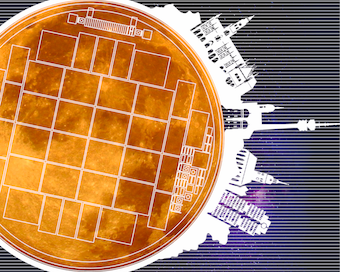Speaker
Description
The CiS Forschungsinstitut fuer Mikrosensorik is engaged in developments of radiation detector technologies on several different fields. Current projects include active edge sensors, 3D sensors as well as new quality control methods.
One active edge sensor run is finished. Three different side wall doping methods (plasma implantation, ion implantation, diffusion) have been tested in combination with two wafer thicknesses as well as with n- and p-substrates. Electrical measurements show the functionality of sensors with inactive edge widths down to 50 µm.
New quality control methods are being tested for planar pixel sensors: one wafer run with a new approach to bias grids is being finished. These new bias grids are removable after quality assessment and allows sensors to operate without the unwanted loss of charges over the grid, especially after irradiation. The preliminarily tested methods of removal include the burning of the grid with high currents, laser removal as well as wet etching. So far etching showed the most promising results.
A new innovative approach to 3D processed sensors is being pursued by using plasma etched trenches as isolation between pixels in planar pixel sensor technology. This will allow a modular design and a reduction in cost and time for prototyping for different customers and applications.
